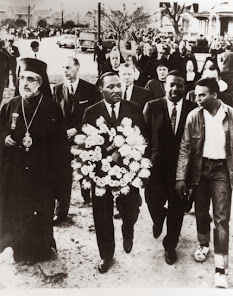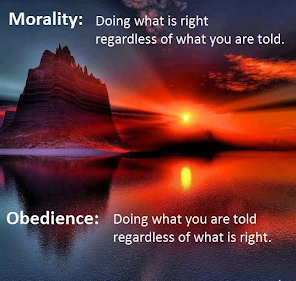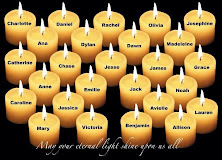John Kaloudis is asking that we post this piece, and has told us he obtained the author's permission to do so.
Fr. Stavros Akrotirianakis
Ah, 'Tis the season for Parish Council elections. Every year as November and December roll around, many Orthodox parishes hold elections for their Parish Councils. In my ten year ministry, I've had Parish Council members who are shining examples of what it is to be an Orthodox Christian, who genuinely care for the mission of the church, who made a weekly habit of receiving Holy Communion, who came to confession, in addition to coming to Parish Council meetings, serving on committees and organizing community events. I've also had Parish Council members who did not attend church, who laughed when I told the Parish Council that all members should go to confession at least once a year, who came to church each Sunday only in time to pass the tray, who weren't faithful in keeping the fasts of the church and who generally did not set a good example.
In my parish, in addition to a seminar for Parish Council candidates held in the local area, last year I instituted an additional one hour private session in my office so that I could have an opportunity to dialogue with each candidate one on one. The other day, in conducting one of these meetings, a candidate asked me "Father, what is your number one goal for next year?" Without even thinking about it, I replied, "To have 11 Parish Council members (the number of my Parish Council) who will worship in church each Sunday." This person replied, "Do I have to come on time?" I guess a priest can dream, but as we approach another year of Parish Council elections, I scratch my head and wonder is it really that hard to find 11 people for a Parish Council who will commit to coming to church on time each Sunday? And is our method of choosing our parish leaders something that needs to be revised?
Picking versus Electing
History shows that leaders have traditionally picked those who work closest with them. Kings chose their men of court, Presidents choose their cabinets, Hierarchs choose their councils, coaches choose their assistant, managers hire their own secretaries, but the parish priests have their councils voted in. (In fact, the priest isn't even allowed to cast a vote for the Parish Council.) Why is that? Some say, this is to serve as a check and balance for the priest, make sure he doesn't get too much power. If we are worried that a priest will wield power in a dictatorial and oppressive way, perhaps that person is not an appropriate candidate for ordination and should be screened out during Seminary. However, the priesthood is a position of authority. The priest serves as the Icon of Christ at the altar in his community.
The priest serves as the leader of his community. Many Parish Council members will argue that the priest leads only the spiritual part of the community, with the Parish Council doing the business part. To which I counter, is there any part of the community life that isn't to be considered spiritual? Just look at your own personal life. Is there a separation between the spiritual and secular parts of your life? Does Christ only lead part of our lives, or is He supposed to be leading at all times, even when we are engaged in "secular" things like sports or socializing? Likewise, there is no secular part of a church -- Christ, through the priest, leads all aspects of community life. If there is a sinful or ungodly segment to community life, like running a bingo business, that aspect of community life needs to be eliminated, not have the priest turn a blind eye to it.
And what happens more often than not, is that rather than serving as a check and balance to temper a priest who "wields too much power," a Parish Council serves as an obstacle and handicaps the enthusiastic priest who is trying to grow his parish in the image and likeness of Christ.
What is the purpose of an Orthodox Church?
The Orthodox Church has but one purpose, to advance the Gospel of Jesus Christ. As subgoals under this overarching theme are mission statements taken directly from the Gospels themselves. "To seek and to save the lost," (Luke 19:10); To call sinners to repentance (Matthew 9:13) ; and "to baptize all nations." (Matthew 28:19) Every priest, parish council member and parishioner should be actively working towards these goals in their own lives and in the lives of their peers. Some have distorted the purpose of the church to include providing a social life and preserving a certain culture and language. There are certainly social and cultural elements present in every parish, but should not be the focus of that parish. The focus of every parish is Jesus Christ.
What is the role of the Parish Council?
Archdiocese regulations in various Orthodox jurisdictions provide a legal job description of the parish council which is to ostensibly help administer the parish in cooperation with the parish priest. Some interpret that as making sure the parish is on solid financial footing, counting money in the tray, running the parish festival, or selling raffle tickets. But if the primary focus of the parish is supposed to be furtherance of the Gospel, then the primary focus of the Parish Council Member is supposed to be assisting the priest to further the Gospel. This means that first and foremost, the Parish Council member must be a supportive example of what it means to be an Orthodox Christian. If Parish Council members are not worshipping in church or receiving the sacraments or going to confession, what kind of message does this send? That these things are important for the "regular people" of the parish but not for its leadership? By not being a good example IN the church, not only does the parish council member not further the message of Christ or work in cooperation with the priest, but actually works in opposition to the priest. Because the regular member of the church is going to think, "If our priest can't convince his own Parish Council that worship and the sacramental life are important, he must be a real bozo." Yes, the parish council has an administrative role in the church. The church festival is generally organized by someone on the Parish Council. Someone on the parish council is usually in charge of the buildings and grounds, the stewardship committee, the outreach committee and acts as a liaison to the various ministries of the church. But the primary role of the parish council is to be leading by example, in worship, in speaking positively about the future spiritual growth of the church.
What constitutes a Member in Good Standing? -- A hypothetical case study
In the parish of Holy Trinity, in Anytown, USA, there was a rule that to run for the parish council, one had to be a member for one full year prior to the election. So, if the election was December 9, 2005 for the parish council of 2006, in order to run, one had to be a member on December 9, 2004. It turns out that one year, George Smith wanted to run for Parish Council. He was a very pious man, in church every Sunday, one of the top stewards of the parish, who also did a lot of volunteer work at the parish festival. In November 2005, George Smith was nominated for parish council and was very excited about the prospect of serving his church. George had moved to the area in January of 2005 from a parish where he had served on the Parish Council, and filled out his membership form on January 2 of 2005. George was disqualified from running because he hadn't been a member of the parish for a full year (he was three weeks short of a full year), and hence wasn't a member in good standing. Mike Johnson, on the other hand, who rarely attended church, who pledged only a nominal amount, was nominated and elected. His great-grandfather, after all, had been one of the founding members of the parish. And for the 90 year history of the church, a Johnson had always been on the Parish Council. Perhaps it is time to redefine what is a member in good standing.
An Uninformed Electorate
In most parishes, members of the congregation do not know all the members who are running. Since we don't have debates or public forums for candidates to introduce themselves before the elections (hmm, there's an idea, a debate on the stage in the parish hall after church), members are told to vote for a slate of candidates they may not even know. And so the voting goes like this. Nick Jones picks up his ballot. It says vote for 6 of these 8 candidates. Nick knows five of the candidates, so he votes for them. He evaluates which of the other three to vote for and finds one of the remaining candidates is named Nick Smith. So he thinks, "My name is Nick, that's a good name, I'll vote for him." And so Nick Smith is qualified in the eyes of Nick Jones merely because his name is Nick. Then you have a good number of parishioners who show up only to vote -- they don't even attend church on election Sunday but come afterward to vote. They bring their checkbooks to make sure they are caught up on their membership for the year, filling out their stewardship form or paying their dues in December, just so they can vote. You have parishioners who themselves are not members in good standing, because they don't live an Orthodox Christian life, voting for people they don't know. An uninformed electorate voting for people they don't know -- is this a functional system?
What motivates people to run for the Parish Council?
There are many answers here. Some are motivated by a desire to help the church grow and to help others grow in their faith. If that's not a motivation to run, you probably need to evaluate why you are running. Some run because "we need responsible people to make sure the church is on solid financial footing." Or "we need to make sure the priest doesn't get too powerful." Or "I've been on the Parish Council for 25 years so I'll run again." Or " my father was on the parish council and now that he's passed away, I'll take my family's seat on the parish council." How many qualified people stay away from the parish council? In my years as a priest, when I've approached people who I think would make excellent parish council members, I have often been turned down by them because "there is too much politics" on the Parish Council, or "I don't know enough people to get elected." If you are running for parish council, you need to clearly examine why you are running. If it's for any reason other than I want to help my priest spread the Gospel in this parish, then please reconsider running. That's not to say that a parish council member does not need an administrative skill set -- yes, people on the parish council need to be good with numbers and balancing checkbooks, should understand stewardship and fundraising and will be doing administrative jobs like making sure the church roof gets repaired. But the primary job of the parish council member is to be a good example of a faithful Orthodox Christian, and being faithful to this role must be a motivating factor for the parish council candidate.
What we need on the Parish Council?
Committed Christians, plain and simple. We need people who will serve as examples to the rest of the community, who will come faithfully and punctually to church each Sunday, who will receive Communion, who will go to confession, who will attend a Bible study or religious retreat, who can talk with some competency about Orthodoxy. What we do NOT need are people who spend the liturgy in the hall, who come at 11:00 a.m. in time to pass the tray, who discourage parishioners from going to confession, who engage in gossip about the priest, or each other. How do these things help in spreading the Gospel of Christ?
The time has come to reexamine how we select leaders in our parishes. If Jesus Christ could choose illiterate fishermen and repentant tax collectors and make them into heralds of the Gospel who founded the Orthodox Church which still exists two thousand years later, if a priest were allowed to choose 9 or 11 (or whatever the number) committed Christians in his parish to serve as its leaders, I'm quite confident that the results would be positive. Since there is virtually no chance that that will ever happen, all I can hope for is that if you are nominated for the Parish Council and aren't committed to regular church attendance, if you don't have a regular prayer life, if you don't receive Communion often, keep the fasts, go to confession periodically (if ever) or are engaged in serious habitual sin, that you will withdraw your name from the ballot. And if there aren't enough qualified people to run in your parish, perhaps the priest will end up getting to appoint one or two people to the parish council. Would that be such a bad thing? He, above all, should know who is qualified.
Several years ago, at summer camp, one of the staff members also happened to be the parish council president of her church community. One morning, as we were beginning the Orthros (Matins) service before the Divine Liturgy, there was one person in our camp chapel (a tent outdoors covering a slab of concrete). In the back row of the chapel, it was this woman who was kneeling on concrete and praying. After Liturgy, I told her how moved I was to witness this scene of a parish council president on her knees praying at the beginning of Orthros in an empty church. I told her thank you for giving me a healthy image of a parish council member to have in my mind. At a time when many parish council members are the last ones in church, it was refreshing to see one be the first. We always picture the parish council members passing the tray, taking sign-ups for something, or hawking tickets to the dinner-dance. It's time for parish council members to step up and change that image, into images of holiness rather than images of business. After all, what is a church, a place of holiness or a place of business? And as Orthodox Christians, we are supposed to be being led by our priests and parish council members to become images of holiness, not merely consumers, customers and constituents.
Fr. Stavros Akrotirianakis is the Priest of St. John the Baptist Greek Orthodox Church in Tampa, FL and is director of St. Stephen's Summer Camp for the Metropolis of Atlanta.
Posted: 22-Nov-07





